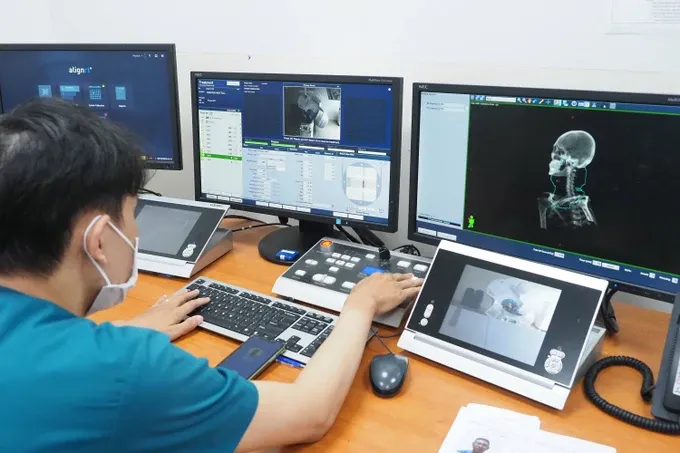
“The integration of AI in content creation is rapidly becoming a prevailing trend. These tools not only optimize time management but also ensure consistency and adherence to predefined standards. AI’s capacity to tailor writing styles to specific business requirements enhances content quality and facilitates more effective engagement with target audiences,” observed the CEO of a media company located in Phu Nhuan District of HCMC.
Tools such as ChatGPT, Gemini, and Copy.ai are capable of generating articles, product descriptions, and even formulating content strategies within minutes, serving as powerful aids for rapid content production. Furthermore, AI is revolutionizing image creation, particularly in marketing and advertising, with platforms like DALL-E and Midjourney enabling the generation of high-fidelity visuals based on textual prompts.
As noted by Xuan Lan, a design professional at a media firm, AI can generate hundreds of variations of a single image in a fraction of the time previously required for manual creation and editing, significantly boosting creative output. These AI tools prove invaluable for designing product visuals, advertising banners, and other marketing materials.
AI-powered speech-to-text transcription tools, offering high accuracy and speed, are also gaining traction among office staff and administrative professionals for efficient call logging. Platforms like Beautiful.ai and DesignScape have achieved breakthroughs in slide design, automating content arrangement, colour palettes, and professional layouts, eliminating the need for extensive graphic design expertise.
“These AI applications not only optimize design workflows but also ensure brand-consistent aesthetics. The more we utilise these tools, the more the AI’s learning and comprehension capabilities are enhanced, imbuing designs with a personal touch,” commented Thanh Chuong, a designer at T&H Company in District 1 of HCMC.
Director Nguyen Ngoc Dat of the Di Dong Viet retail chain predicts a surge in AI-enabled mobile devices, particularly smartphones, in 2025, identifying this as a key market trend. With mobile work practices becoming increasingly prevalent, AI integration in smartphones is becoming indispensable, with projections indicating a proliferation of more user-friendly AI applications.
Google pioneered the introduction of GenAI-powered smartphones with its Pixel 8 Pro in December 2023, featuring functionalities such as recording summarization in Recorder and intelligent reply suggestions via Gboard. Subsequently, Samsung announced the integration of Galaxy AI in its Galaxy S24 series and later extended it to previous models such as the Galaxy S22, Fold 5, and Flip 5.
“Features like recording summarization, real-time voice translation, and ‘Circle to Search,’ which allows users to circle any on-screen element for instant search, are particularly compelling,” remarked Manh Cuong, a Samsung Fold 6 user.
In early January 2025, OPPO launched its Reno13 Series, positioned as “AI experts”, designed to optimize content creation, work, and entertainment. The devices feature intelligent document summarization, an AI note-taking assistant for context-aware content formatting and editing, and enhanced AI tools integrating smart voice translation and automated responses, facilitating cross-lingual communication and boosting productivity.
Product Director Van Ba Luyt of Oppo Vietnam asserted that AI applications are not a momentary phenomenon but a sustained trend poised to continue for years to come, driven by the increasing reliance of users on diverse smartphone functionalities. AI is thus becoming essential to satisfy and meet evolving user demands for both professional and leisure activities.
Market research firm IDC projects a 364-percent surge in shipments of smartphones with integrated generative AI this year, reaching 234.2 million units compared to 2024, with a potential growth to 912 million units by 2027. The integration of AI into work and leisure, particularly on mobile platforms, is becoming an inexorable trend.
IBM’s recently published “APAC AI Outlook 2025” report indicates that 54 percent of businesses anticipate long-term benefits from AI in areas such as innovation and revenue growth. The report also highlights key trends shaping the future of AI in the Asia-Pacific region, namely strategic AI implementation by businesses, the transformative impact of AI assistants on various job roles, and the increasing adoption of AI-driven workflows and applications.
























